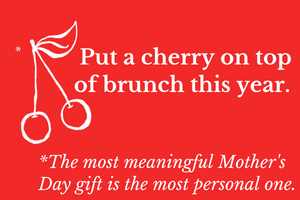View this post on Instagram
Last week, my partner and I finally admitted to ourselves and each other that our relationship was not just stuck in a rut.
It was like a wheel spinning in that rut, not moving and getting more stuck the harder we tried to get back on track.
We decided to take Einstein’s advice (apparently) if we wanted things to change. There was no point in just doing more of the same. So, we decided to split up, draw a line under everything that had happened between us up to that point, and start a new relationship: with each other.
The best-selling relationship therapist and writer, Jed Diamond, has described what he calls the “Five Stages of Love.” He says that after the initial honeymoon period, and then “settling down” together, there comes the third stage that he calls “disillusionment,” when each partner begins to see the other more as the person they really are, which is bound to be less shiny than the ideal they seemed to be in the beginning. A lot of that is made up of projections and wishful thinking, powered by all kinds of brain chemicals.
The tragedy in Jed‘s view is that many couples part at this point when actually, it’s the potential starting point for them to love each other (and accept themselves) in a deeper, more authentic way. We were definitely at that point, which had, maybe, come more quickly to us because of meeting in our 60s. Apparently, it can take some couples years to reach the stage we had got to after a little more than 12 months.
The starting point of our new relationship was for us to admit to the mistakes we’d both made in our relationship, but also to acknowledge that there must have been an explanation for everything that either of us had done that had caused hurt or created distance between us.
After counselling thousands of couples, Jed concluded that 90 percent of the cause of difficulties between a couple is because of something in their individual past experiences rather than because of incompatibility or other problems between them. In fact, he says that incompatibility can be the best basis for an intimate and trusting relationship because it can push each partner into learning more about themselves and their partner and taking responsibility for their feelings.
I can say that certainly felt true in our case, and by framing it this way, it gave us confidence that we could improve things between us in the future.
To begin again, we both agreed to try and resist the temptation to blame the other person or to feel shame and guilt for our own behaviour. These feelings would have just added to the mud that had got the wheels of our relationship so stuck in the first place.
We had to truly forgive ourselves and each other, and accept and believe that neither of us was “wrong.”
We could see that we had both consistently done our best, but what we needed was a clearer understanding of the emotional baggage that each of us had brought into the relationship. With this perspective, we could agree to be each other’s best allies in healing whatever that past pain was and to support each other’s emotional growth, rather than linger in some kind of emotional battle over whose fault our difficulties were.
As part of this, we both promised to do whatever was necessary as individuals to identify and heal from the hurt we were carrying around, and to focus on enjoying our shared journey toward having a deeper, more real loving relationship.
If anything triggered painful memories from the past, we wouldn’t bury it; we would try to understand it and see it for what it was. We wouldn’t dwell on the past, but there mustn’t be any taboo topics if either of us needed to clear the air about something we had said or done (or not said and not done).
For example, I was able to understand that when I felt unloved by her, it was partly because I had often felt invisible and unloved as a child, and these feelings were being triggered by what I saw as her cold behaviour. I had to take responsibility for changing my over-reaction, but she could see that she did sometimes behave in an unloving way because she was out of touch with her own feelings due to her own family history and some past dysfunctional relationships.
We discovered that when we were willing to take responsibility for them and didn’t feel like we were being blamed or accused, every issue between us had an explanation that was not actually about each other.
It’s still early days in our new relationship, but we’ve already identified and changed quite a few of our mutually provoking habits and patterns, many of which were defensive and rooted in a lack of trust.
Once again, we become partners—this time in a deeper love rather than a romantic fantasy.






Read 0 comments and reply